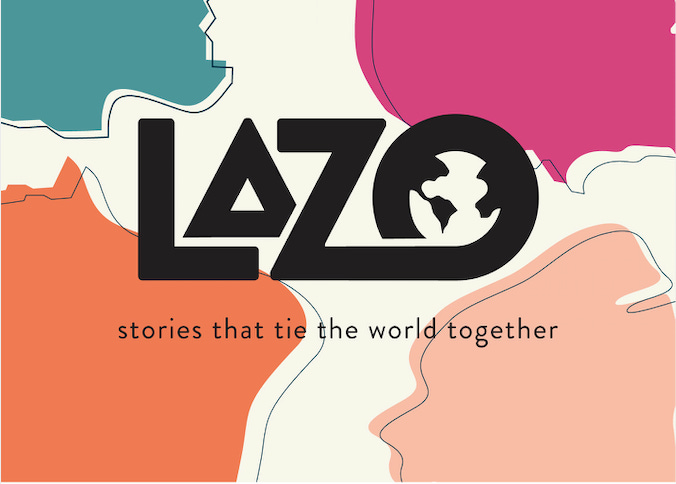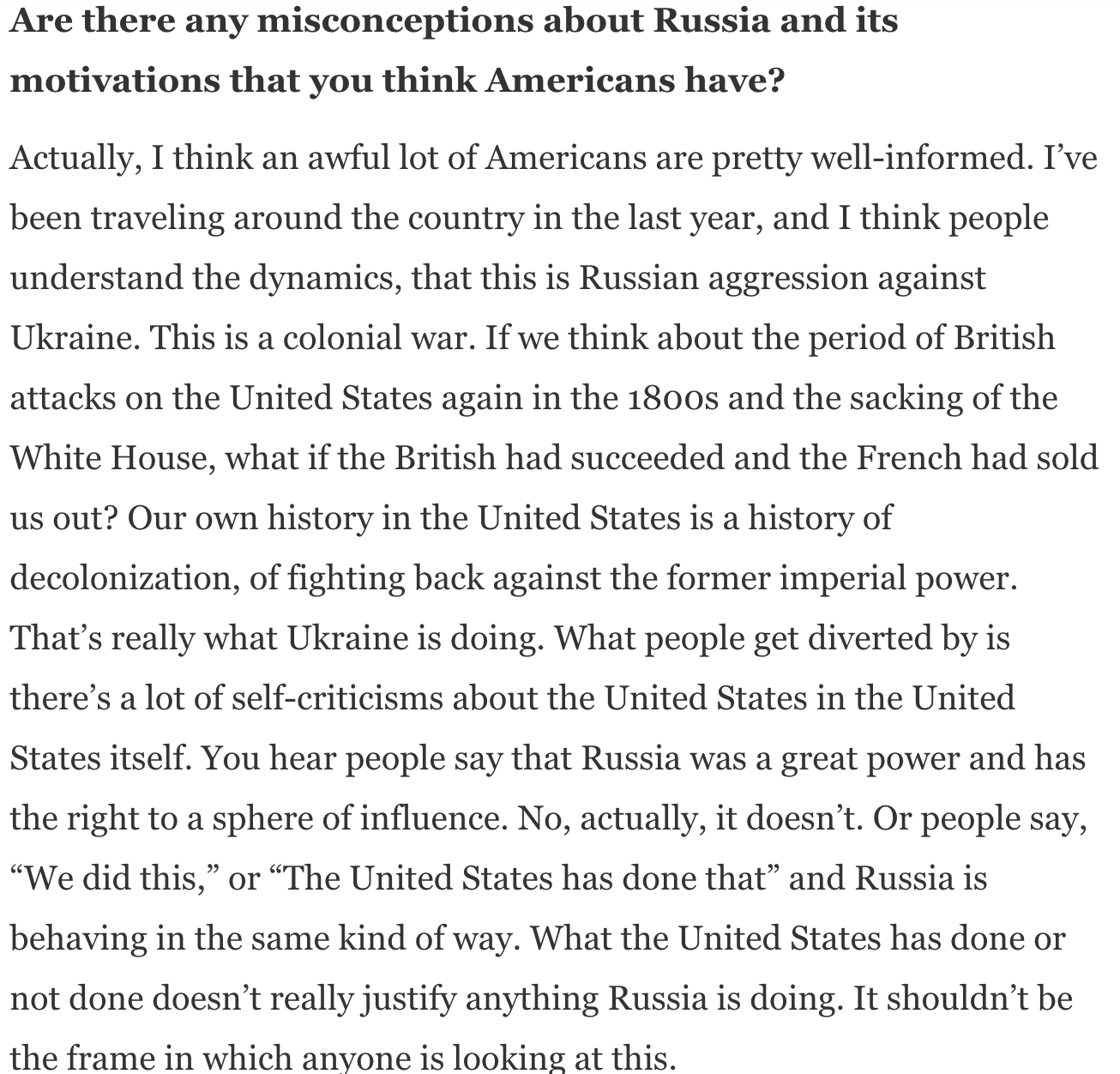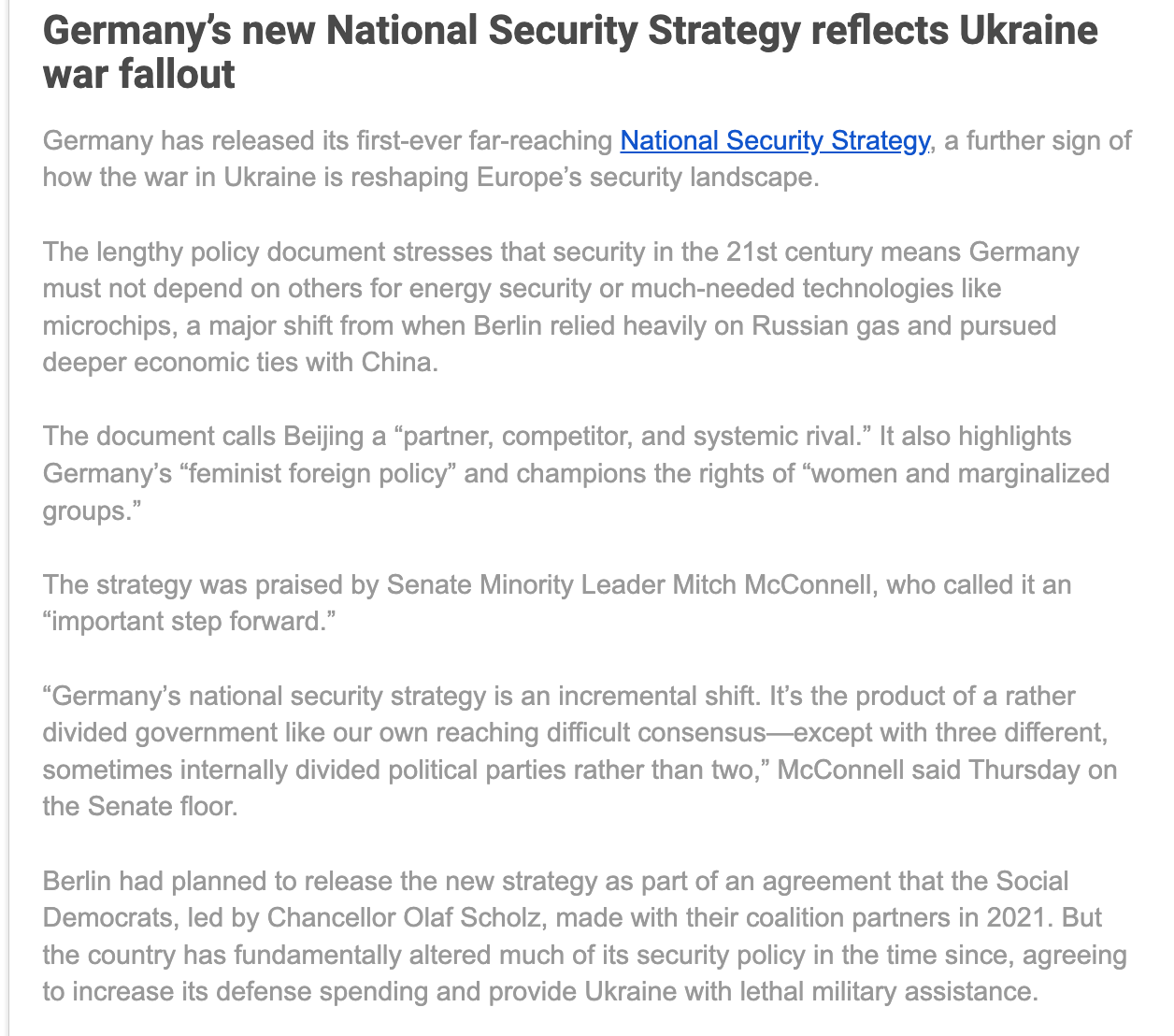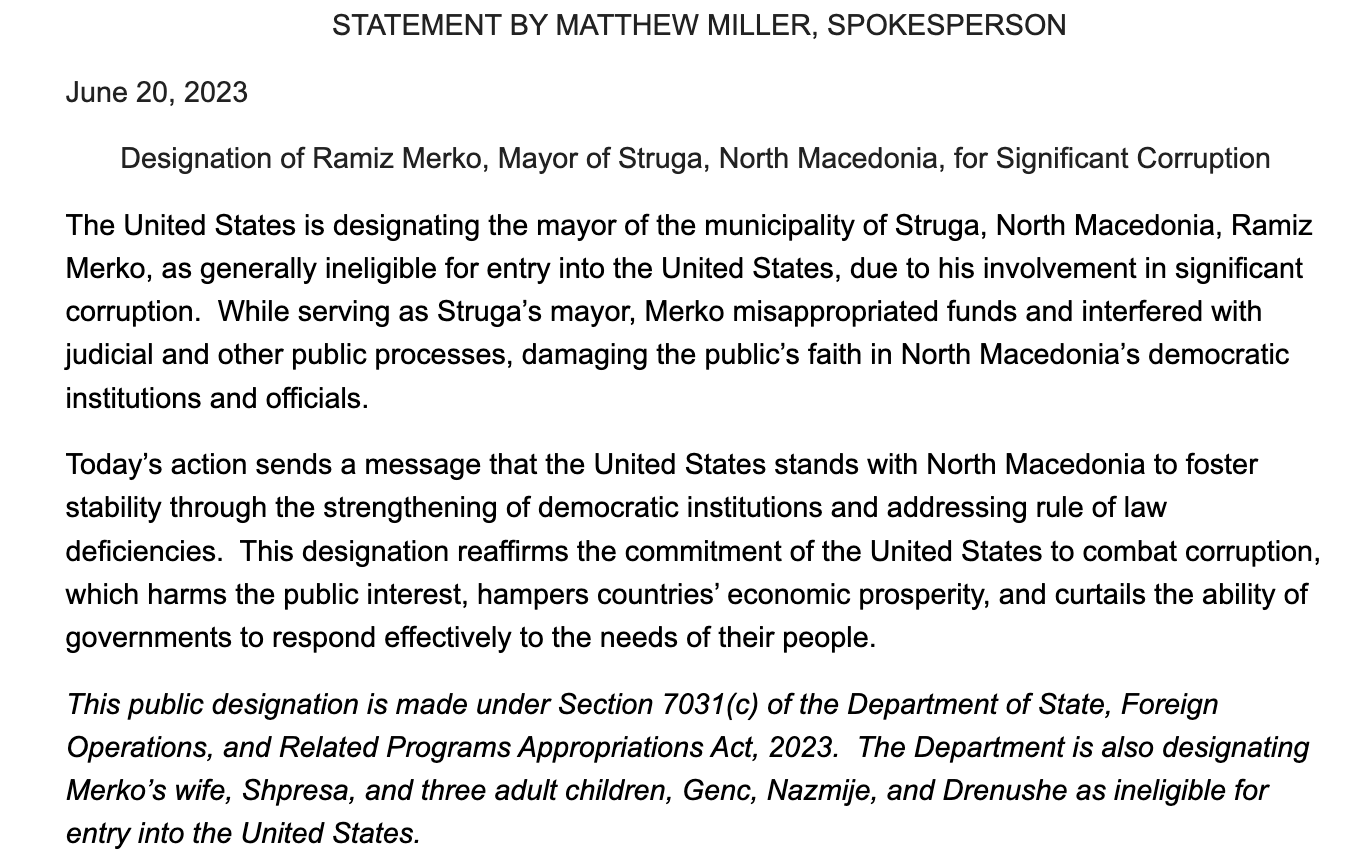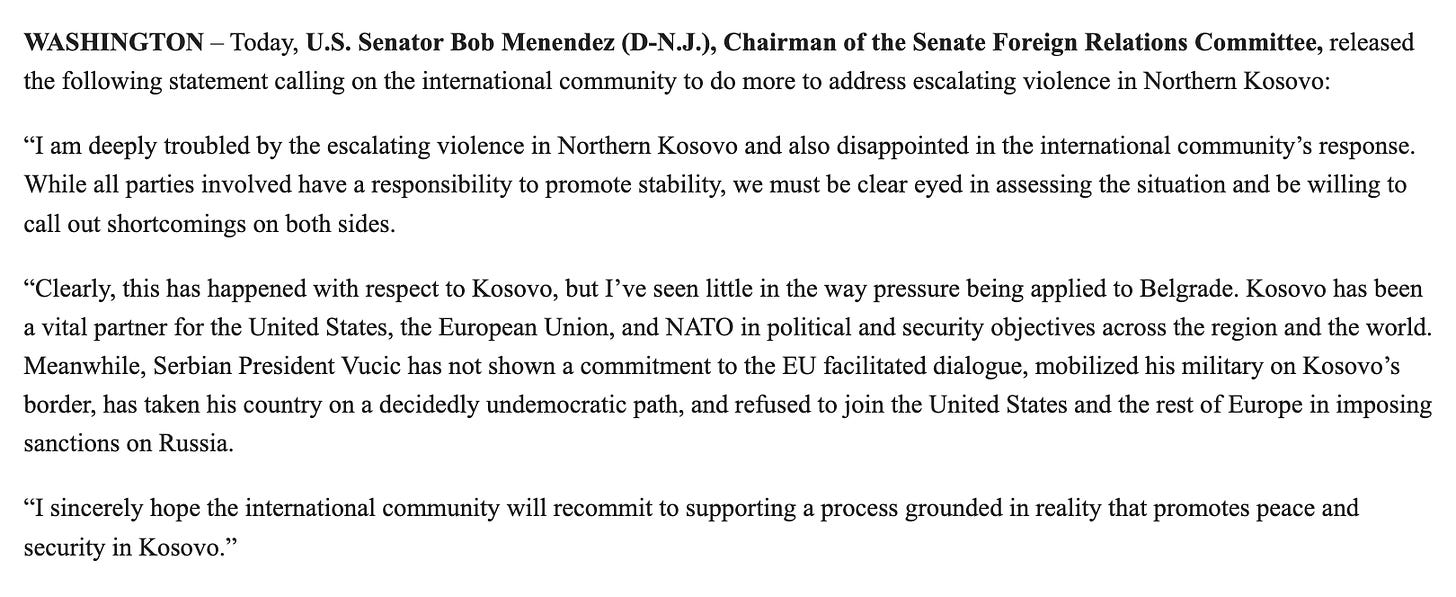Hello, everyone. This is a note to say that Lazo Letters will be hosted on Substack instead of Ghost.io. I don’t anticipate this will change anything for you, but I apologize if there are any glitches. Please bear with me as I make the transition.
One benefit of moving to Substack is that you can just hit the reply button to write to me. So, if there’s anything you hate about this new format or would like to see more of, SMASSSSH that button and let me know.
This week India’s Prime Minister Narendra Modi visited Washington, where he held high-level meetings with President Joe Biden and gave a joint address to Congress. The House gallery was packed with Modi supporters, and they clapped and whooped and chanted his name so loudly that some U.S. lawmakers looked up in concern or confusion.
It felt like a campaign rally for a populist. And in a way, it was.
Before listening to Modi’s speech, I went to speak with some of the people protesting his visit in front of the White House. There were Sikhs, Christians, Muslims, and members of some of India’s lower castes, all of whom say they are facing persecution in India. There were also Hindu groups demanding human rights and Modi supporters who showed up to scream at the protesters.
I wrote a piece detailing some of the accusations against Modi and his government. You can also find it in the section below. But for now, some images from Washington D.C. on Thursday.
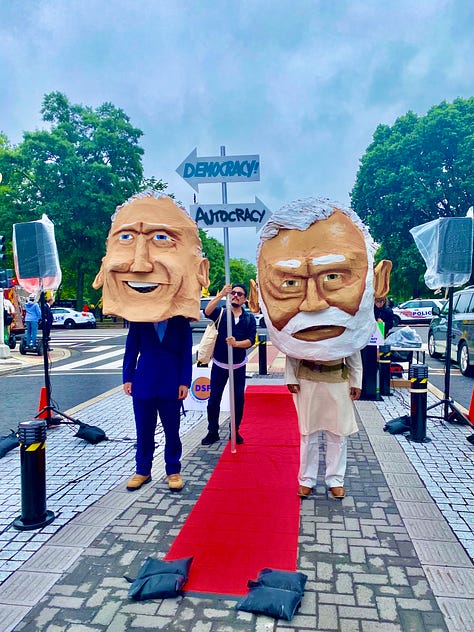
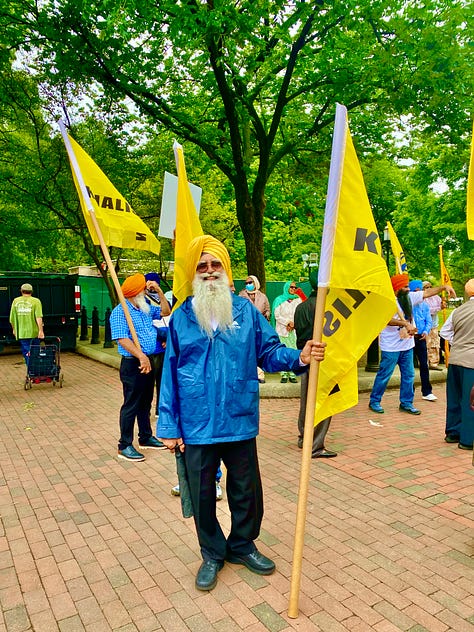
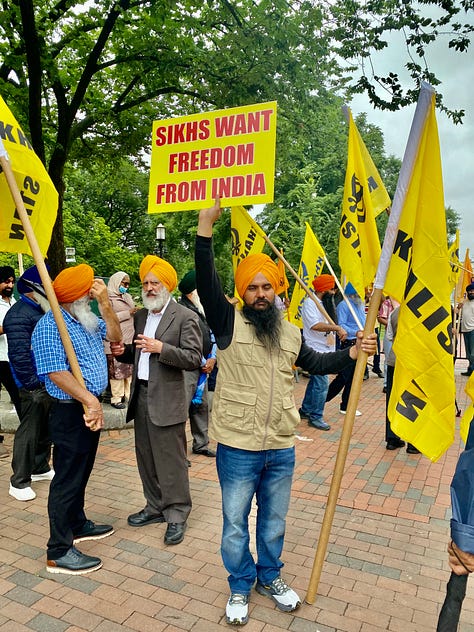
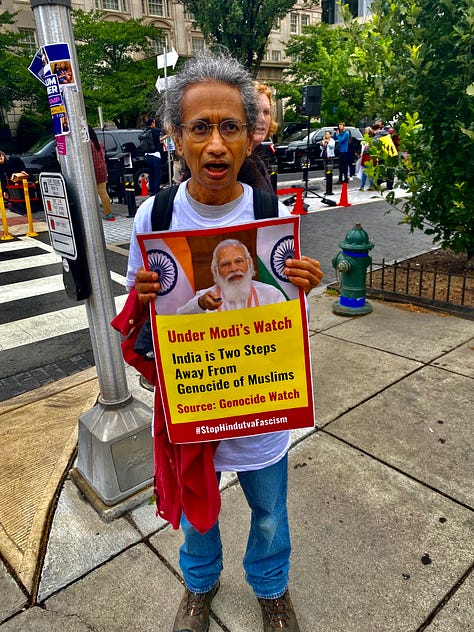
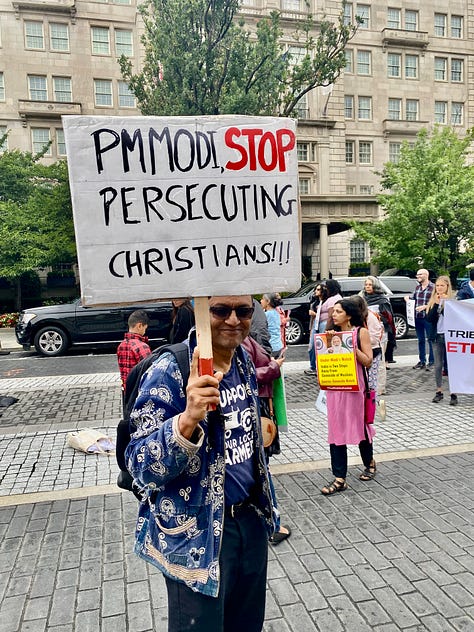
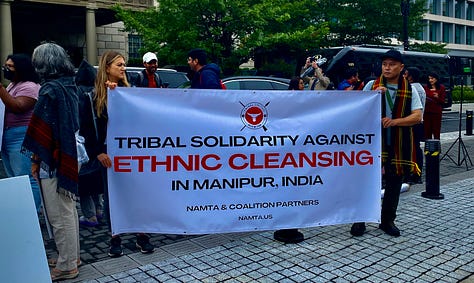
What I’m writing:
• Activists called attention to Prime Minister Modi's erosion of India’s freedom of expression and religion during the leader's joint address to Congress. Modi has been accused of promoting Hindu nationalism, a right-wing ideology known as Hindutva that extols the supremacy of Hindus, who are considered a race rather than merely a religious group. Experts have compared Hindutva to right-wing Christian nationalism. And as the tensions between Modi’s government and religious minorities rose over the past decade, experts began warning that genocide could take place in India. This story is unlocked and free to read.
• The Biden administration wants to stop the increasingly fraught U.S. relationship with China from spiraling into an all-out cold war. But it’s not getting a lot of support from Congress, which favors a tougher approach to Beijing. This piece is unlocked and free to read.
• I spoke to Fiona Hill, a British-American foreign affairs expert who served in the Trump administration’s National Security Council as a specialist on Russian and European affairs (and was a key witness in Trump’s first impeachment). We discussed the existing narratives around the war in Ukraine and why Europe should take the lead role in diplomacy.
Here’s a snippet from our conversation:
News blurbs I wrote this week:
What I’m reading:
• Manipur, a violence-wracked state in northeast India, is teetering on what many believe is the brink of a civil war, the BBC reports. Clashes between the majority Meitei and Kuki communities have left over 100 dead and 400 wounded. Nearly 60,000 people have been displaced and taken shelter in 350 camps.
• Gabriel Gavin reports for Politico Europe about the Chechen men who are afraid of facing shakedowns, torture, or being ‘volunteered’ to fight in Ukraine.
• The decision to place Russian tactical nuclear weapons in Belarus represents a further diminishment of Belarus’ sovereignty and is a significant step in Russia’s absorption of Belarus, a longtime goal of President Vladimir Putin, Valerie Hopkins reports for the New York Times.
• Ukraine said that Budapest has been ignoring requests for contact with prisoners of war that Kyiv claims have been secretly transferred from Russia to Hungary, Reuters reports.
• The Moldovan Constitutional Court ordered the immediate dissolution of Sor, a pro-Russian political party, the BBC reports. Moldova’s police chief warned months ago that Russian intelligence agencies were using protests organized by Sor to destabilize the country.
• Georgia’s President Salome Zourabichvili announced that she had pardoned journalist Nika Gvaramia, the founder of pro-opposition broadcaster Mtavari Arkhi who has been in prison for a year. The Committee to Protect Journalists welcomed the pardon.
• Aliide Naylor writes for Meduza’s The Beet about same-sex marriage in Estonia.
• Matt Karnitschnig reports for Politico Europe that Kosovo’s Prime Minister Albin Kurti has achieved the impossible in American politics: consensus among Democrats and Republicans. But the point of agreement is that Kosovo’s leader is a stubborn, reckless politician who has undermined the joint U.S.-European effort to achieve a lasting solution for peace between Kosovo and Serbia.
•Spain’s far-right Vox party took office in several Spanish cities and the region of Valencia, the New York Times reports. Vox’s electoral success comes after it forged a coalition agreement with the center-right Partido Popular.
• In Spain, the center-right Popular Party and far-right Vox party in Náquera, a village in Valencia, agreed to ban rainbow flags on municipal buildings and prohibit protests against sexism and gender-based violence, Spain’s Cadena Ser reported.
• Amnesty International accused Spain and Morocco of a cover-up for failing to adequately investigate an incident at the border of the Spanish enclave of Melilla last year, when at least 37 migrants died and at least 76 are still missing following a mass attempted crossing. Reuters has the story.
• Kazakhstan’s government said it will stop hosting talks aimed at resolving Syria's 12-year-old conflict, the Associated Press reports. The abrupt announcement surprised Russia and other participants as they wrapped up the 20th round of talks in the capital of Astana.
• Kyrgyz and Kazakh companies have exported sanctioned dual-use technology to Russian suppliers of the Kremlin's war machine amid Western efforts to stymie such transfers through the Central Asian nations, an investigation by RFE/RL found.
Interesting statements:
You can still write to me for any reason at c.maza@protonmail.com.





